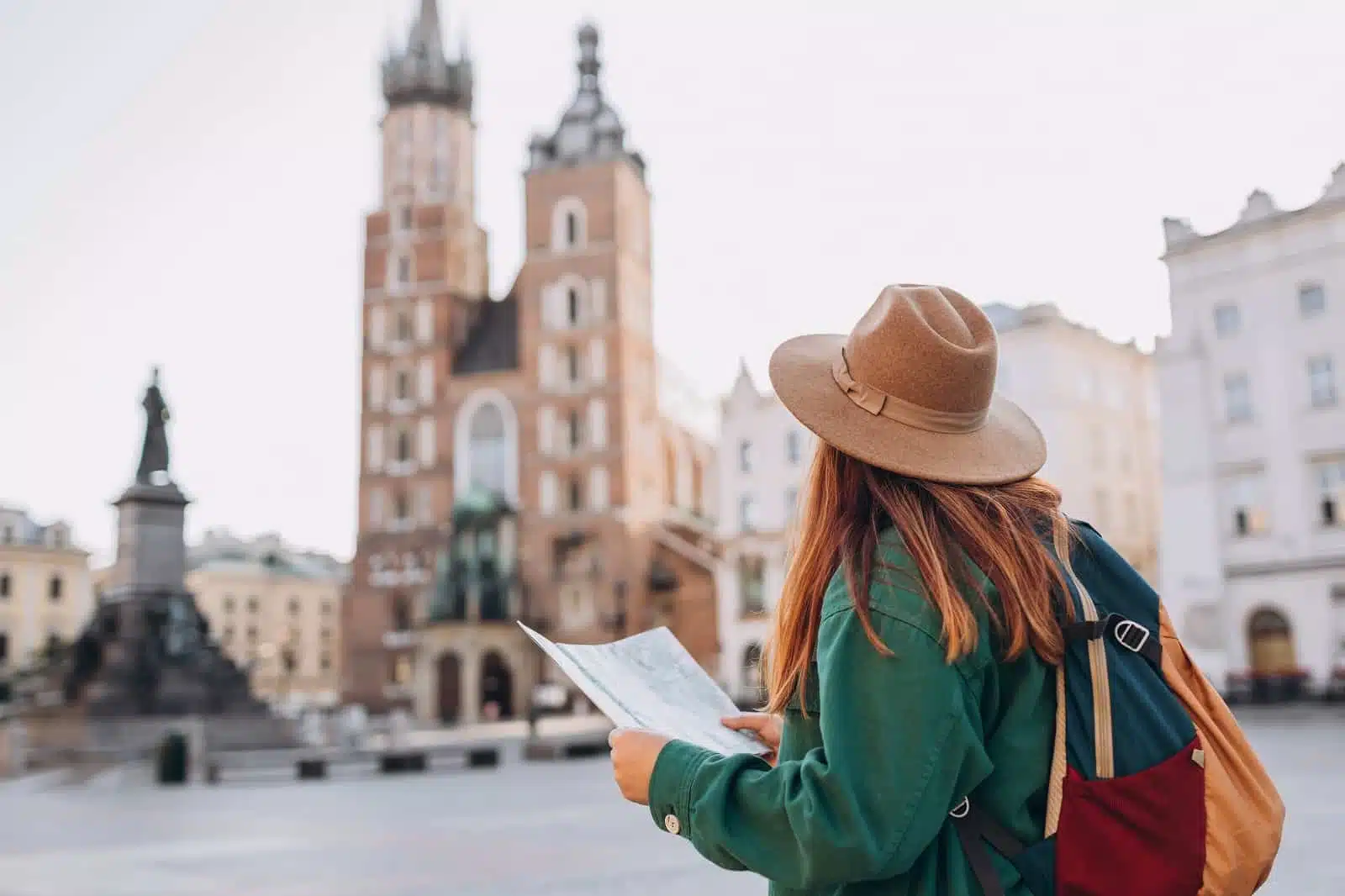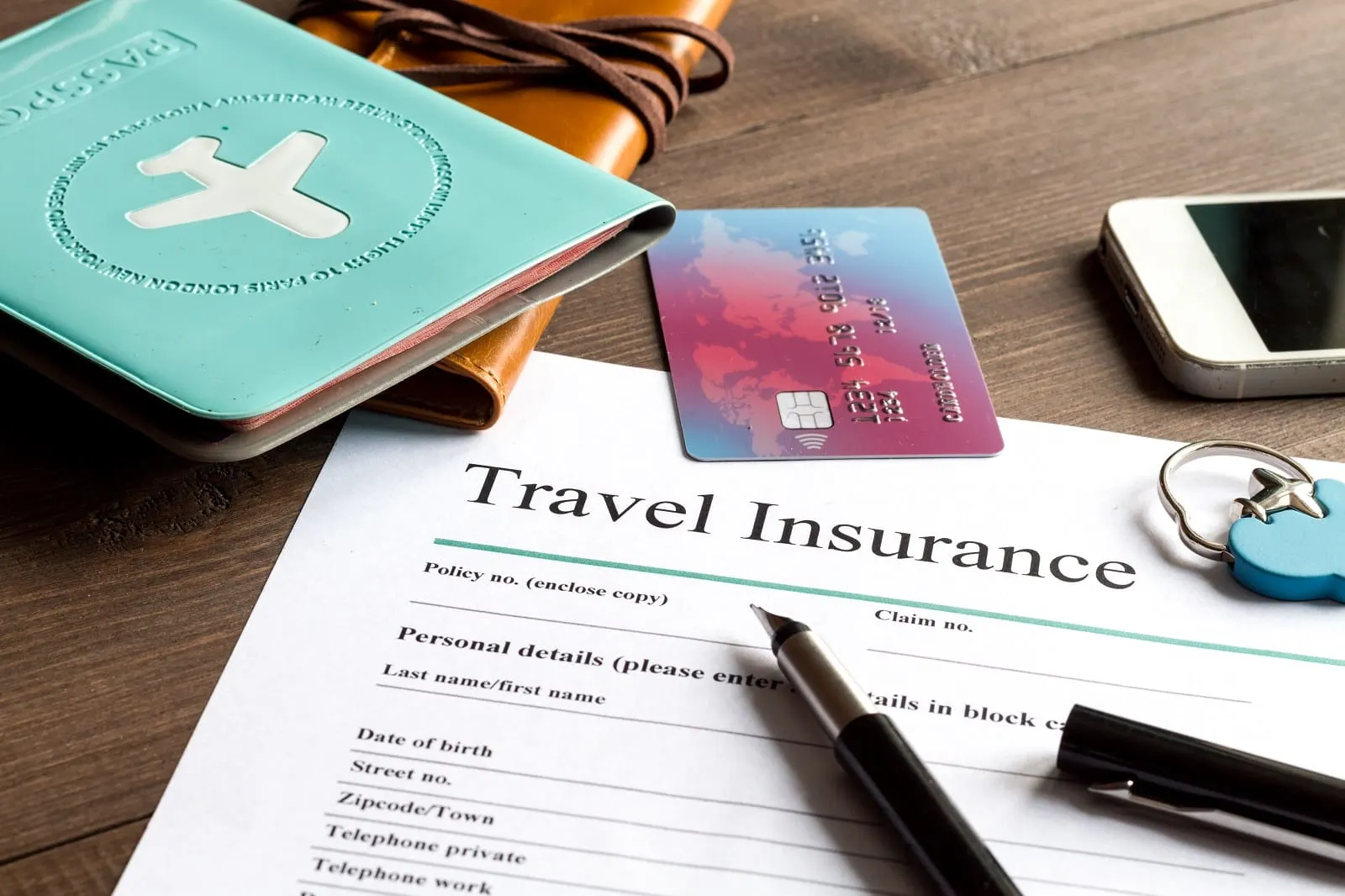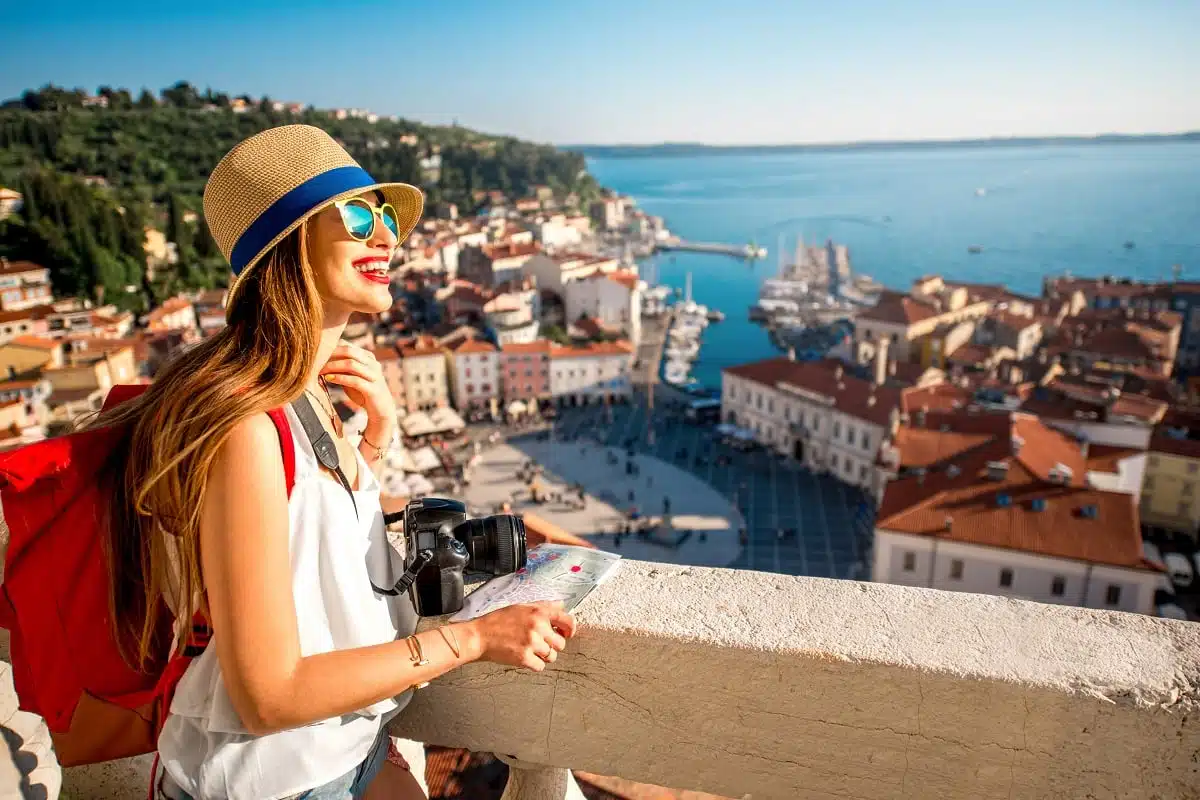Solo travel can be one of the most rewarding ways to explore the world, offering a sense of freedom and personal growth. However, navigating unfamiliar places alone also comes with its unique set of challenges, particularly regarding safety. This guide provides essential tips and strategies for staying safe while enjoying the liberating experience of solo travel. From understanding local customs to managing your finances securely, these tips are designed to help you travel smartly and safely.
1. Research Your Destination Thoroughly

Image Credit: Shutterstock / phM2019
Understanding your destination is the first step to a safe solo travel experience. Delve into the local culture, customs, and social norms to avoid any cultural faux pas that could attract unwanted attention. Familiarizing yourself with the local geography, including safe neighborhoods and areas to avoid, is crucial. This research should also extend to understanding local scams, political situations, and health advisories. Utilize various sources like travel blogs, forums, and official government websites for the most current information. This preparation ensures your safety and enriches your travel experience, allowing you to immerse yourself more fully in the local culture.
Insider’s Tip
Learn a few phrases in the local language, especially those related to directions and emergencies, to navigate more easily and seek help if needed.
2. Keep Your Accommodation Details Private

Image Credit: Shutterstock / Boyloso
Secrecy regarding your accommodation is key to maintaining your safety. This means being discreet about where you’re staying when conversing with strangers or even fellow travelers you’ve just met. In the age of social media, it’s also wise to avoid posting your location in real time or tagging your hotel in posts. When checking into your accommodation, you can request the reception not to disclose your room number or personal information. This level of privacy helps avoid unwanted attention. It ensures you have a safe haven to return to after your day’s explorations.
Insider’s Tip
Choose accommodations with a 24-hour front desk and good security reviews, especially if you plan to return late at night.
3. Stay Connected

Image Credit: Shutterstock / Vitalii Matokha
Maintaining a connection with your friends or family back home is vital for safety. Regular check-ins can reassure you and them. In the age of technology, various apps allow real-time location sharing, which can be a lifesaver in emergencies. It’s also important to always have a working phone with you, so consider buying a local SIM card for easy and cost-effective communication. In addition to keeping in touch with loved ones, accessing the internet can help you navigate unfamiliar places more easily and access essential information on the go.
Insider’s Tip
Use travel apps that allow you to share your real-time location with trusted contacts.
4. Manage Your Finances Wisely

Image Credit: Shutterstock / Alex Segre
Financial security is a crucial aspect of solo travel. It’s important to have a mix of cash and cards and keep them in different places to mitigate the risk of losing all your funds simultaneously. Be discreet when handling money in public and aware of your surroundings, especially at ATMs. It’s also a good idea to have a small amount of cash easily accessible, so you don’t have to open your wallet or bag in public. Informing your bank about your travel plans can prevent your cards from being blocked for suspicious foreign transactions, ensuring you always have access to your funds.
Insider’s Tip
Inform your bank of your travel plans to avoid issues with your cards abroad.
5. Blend In with the Locals

Image Credit: Shutterstock / David Bokuchava
Blending in can significantly enhance your safety. This means dressing similarly to the locals and understanding and respecting their customs and etiquette. Avoiding flashy jewelry or clothing that screams ‘tourist’ can help you avoid being a target for scams or theft. Observing and adapting to local behaviors helps blend in and enriches your travel experience, allowing for a deeper cultural immersion. Remember, the goal is to observe and respect the local culture, not to appropriate it.
Insider’s Tip
Research local dress codes and customs before your trip, and pack accordingly.
6. Trust Your Instincts

Image Credit: Shutterstock / Kaspars Grinvalds
Trusting your instincts is perhaps your most important tool for staying safe. If something feels off, removing yourself from the situation is okay. This might mean changing your route, leaving a venue, or even altering your travel plans. Being aware of your surroundings and avoiding distractions is crucial, especially in unfamiliar environments. Don’t worry about offending someone if your gut tells you something isn’t right. Your safety always comes first.
Insider’s Tip
If you feel unsafe, head to a public place like a café or store and seek assistance if necessary.
7. Be Cautious with New Acquaintances

While meeting new people is a highlight of solo travel, it’s important to approach new acquaintances with a degree of caution. Be mindful of how much personal information you share, especially where you’re staying or your travel itinerary. In social settings, keep an eye on your drink and personal belongings. If meeting someone you’ve connected with online, always do so in a public place and inform someone of your plans. Remember, it’s okay to be friendly, but maintaining a level of caution is key.
Insider’s Tip
Use social media and travel forums wisely – be selective about what personal information you share.
8. Prioritize Your Health

Image Credit: Shutterstock / 279photo Studio
Taking care of your health is essential when traveling alone. This includes eating well, staying hydrated, and getting enough rest. Familiarize yourself with the health risks in your destination and take necessary precautions, such as vaccinations or avoiding certain foods. Carrying a basic first-aid kit and any personal medications is also important. Don’t forget to invest in comprehensive travel insurance that covers medical emergencies. Taking care of your health ensures you can fully enjoy your travel experience.
Insider’s Tip
Purchase comprehensive travel insurance that covers medical emergencies and familiarize yourself with the location of nearby clinics or hospitals.
9. Secure Your Belongings

Image Credit: Shutterstock / slexp880
Securing your belongings is crucial in preventing theft or loss. Invest in luggage with secure, lockable zippers and consider using anti-theft bags. Be particularly vigilant in crowded places and keep your belongings in front of you to avoid pickpockets. When staying in shared accommodations, use lockers or safes for your valuables. Additionally, making digital copies of important documents like your passport and travel insurance can be a lifesaver in case of loss or theft.
Insider’s Tip
Make digital copies of important documents like your passport and travel insurance and store them securely online.
10. Be Aware of Common Scams

Image Credit: Shutterstock / Ground Picture
Awareness of common scams at your destination can save you from becoming a victim. These can range from simple overcharging to more elaborate cons like fake police officers or rigged ATMs. Be cautious of overly friendly strangers who may have ulterior motives. Always verify the authenticity of any unsolicited offers or services. Staying informed about common scams can help you navigate new destinations with confidence.
Insider’s Tip
Read travel forums and blogs to learn about common scams in the area you are visiting.
11. Use Public Transportation Wisely

Using public transportation is often a safe and efficient way to explore a new place. However, being aware of your route and surroundings is important, especially when traveling at night. Keep your belongings secure and avoid displaying valuables. Familiarizing yourself with the local transportation system before you travel can save you time and stress. In some destinations, certain modes of public transport might be safer than others, so doing your research is key.
Insider’s Tip
Download local transportation apps for real-time information and maps.
12. Night Safety

Image Credit: Shutterstock / Troy Rocco
Extra caution is warranted during night-time adventures. Avoid walking alone in poorly lit or secluded areas. Plan your return journey in advance, whether it’s a taxi or public transport. Be aware of the local nightlife scene and areas that might be unsafe. If you find yourself in an uncomfortable situation, don’t hesitate to leave and head to a safer, more populated area.
Insider’s Tip
If using a taxi at night, choose a reputable company and share the details with someone you trust.
The Bottom Line
Solo travel is an empowering and enriching experience, but it comes with the responsibility of ensuring your safety. By being well-prepared, staying aware, and making smart choices, you can navigate new destinations confidently and securely. Remember, your safety is paramount, and taking these precautions allows you to fully embrace the joys of solo exploration. As you embark on your solo adventures, carry with you not just your belongings but a sense of awareness and self-reliance that will serve you in every step of your journey.
More From The Green Voyage
12 Best Practices for Sustainable Travel in 2024 – How to Travel With Minimal Environmental Impact
Unlocking Hotel Perks – A Traveler’s Guide to Maximizing Hotel Reward Programs for Optimal Benefits
Travel Hacks for Frequent Flyers – 6 Tips and Tricks to Make the Best of Air Travel
The post 12 Solo Travel Safety Tips – Navigating the World on Your Own 2024 first appeared on The Green Voyage.
Featured Image Credit: Shutterstock / RossHelen.
For transparency, this content was partly developed with AI assistance and carefully curated by an experienced editor to be informative and ensure accuracy.
